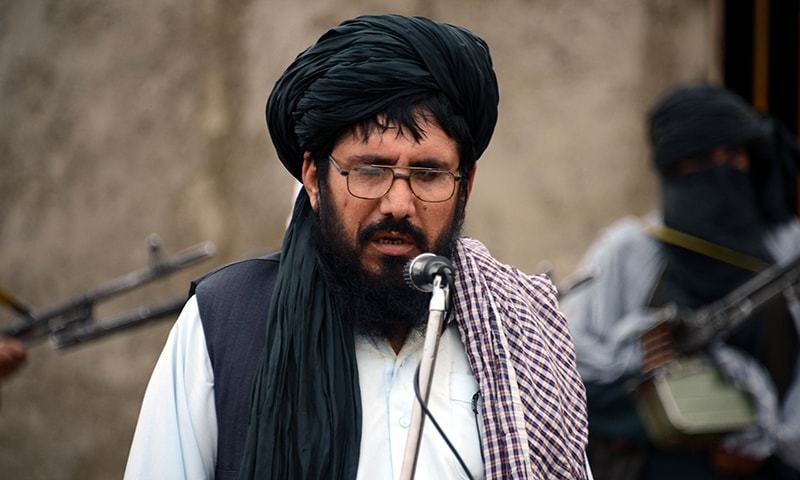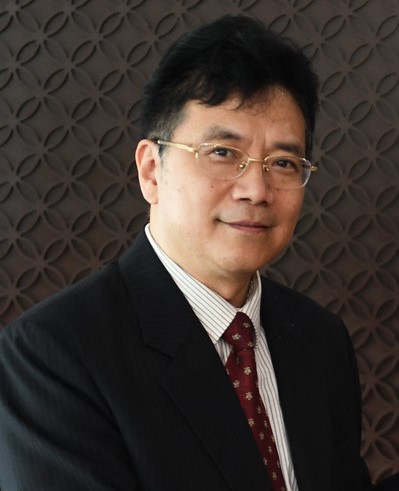China has offered to host a meeting between the Afghan government and Taliban but has declined to mediate. China’s special envoy for Afghanistan Deng Xijun called the Taliban “one of the main forces in Afghanistan’s political arena.” Earlier this year, China had facilitated a meeting between Afghan High Peace Council and Taliban in Urumqi. Deng said that the Chinese government wants early revival of the Murree process. Deng visited Pakistan and Afghanistan soon after his appointment as special envoy for Afghanistan. “We will support Pakistan to continue playing its constructive and crucial role in the Afghan peace process,” Deng said. To a question about the role of the United States in the peace process, he said there was an understanding between Washington and Beijing to push the peace process forward.
Like Pakistan, China opposes a military solution to the Afghan conflict and favours intra-Afghan dialogue. “We think dialogue is the only way out for Afghanistan to achieve lasting peace and stability,” Deng said. “We have difficulties and obstacles when we have in such kind of things. We have many problems and challenges ahead but if we sit down, if we talk with each other, then I think the future is bright”, he added. He reassured Pakistan of China’s continued support in addressing common challenges faced by the region. Both Pakistan and China have convergent interests and shared goals with regards to Afghanistan.
On the Afghan Taliban side, the leadership crisis has entered a divisive phase; those who had refused to accept Mullah Akhtar Mansoor as successor to Mullah Omar, have formally announced Mullah Mohammad Rasool as head of their splinter group. Dissident leaders met in Farah province of Afghanistan and elected new leaders. Presumably they have been in contact with the Afghan government and the Afghan officials facilitated their meeting on November 01. Now well-meaning elements are making efforts to ensure that both sides desist from infighting—a tall order indeed! Many in the Taliban movement were unhappy the way the death of Mullah Omar had been kept secret for two years — during which time annual Eid statements were issued in Omar’s name.
The dissident chief has claimed that differences surfaced as Mansoor was not ending contacts with the foreigners. “Our colleagues had been advising Mansoor to sever ties with the Americans, give importance to former Mujahideen and do not give positions to incompetent people,” Rasool told his supporters. “He did not accept our demands but removed competent persons, killed and detained some people,” Rasool claimed. He went on to say, “When Mullah Omar’s death was formally confirmed, Mullah Akhtar Mansoor and his three, four or five people, sat and held election. He is not our leader… Mansur is not our Amir-ul-Momineen”. He was not elected lawfully in accordance with Sharia to lead the group,” said Rasool.
The much talked about split that now stands formalized has added more complexities to the intra-Afghan peace process. It could attract more hard-line fighters and make any future peace talks more complicated for the Afghan government and most analysts warn that it bodes ill for any potential peace talks. Afghan politico-military culture is notorious for opportunism and shifting loyalties. It will take some time to ascertain about the sponsors of the splinter group and the motivation behind it.
Emergence of the new group is unlikely to threaten Mansoor, who has consolidated his position and has demonstrated this through a series of attacks on hard and soft targets that raised serious questions about the viability of Afghan National Security Forces (ANSF). The most prominent Taliban activity was their stunning three-day occupation of northern Kunduz city after which US-NATO troops and ANSF took fifteen days to re-take the city completely. First outcome of his group’s high military profile during this year’s fighting season was extension in the stay of residual US-NATO troops, till at least 2016.
The Adviser to Prime Minister on Foreign Affairs Sartaj Aziz has said the time is not “opportune” for Pakistan’s role in the Afghan peace talks. “Reconciliation in our view is one of the best options but the pre-conditions for a successful outcome are required, and that requires some consensus among stakeholders,” Aziz said on November 02. “Afghan government and Taliban have to decide when meaningful discussions can take place. That is the time where our role comes. Right now I don’t think the time is opportune,” Aziz added. In the meanwhile Afghanistan continues criticising Pakistan, Afghan Interior Minister Noorul Haq Uloomi has accused Pakistan of “promoting insecurity” in Afghanistan. “Plans for subversive activities in Afghanistan are still being plotted in Pakistan,” Ulomi said.

On President Ashraf Ghani’s request, Pakistan had facilitated the first ever face-to-face talks between the government in Kabul and Afghan Taliban in July. The next round was about to begin in Murree; however, news about Mullah Omar’s death led to the cancellation of the dialogue. Later, President Ghani said he would not seek Islamabad’s role in peace with the Taliban and Afghanistan will pursue it on its own.
In another development Afghanistan has resumed its relationships with India, it has picked up the threads from where Karzai had left. Afghanistan has acquired four attack helicopters from India to help it fight a growing Taliban insurgency; it is a small but significant deal marking a shift in Kabul’s search for allies. Pakistan, bordered by India to the east and Afghanistan to the west, sees India’s deepening military relationship with Afghanistan as part of an Indian plan to undermine its stability from the rear. Pakistan has maintained that India must limit itself to economic assistance.
A report by the ‘US Congressional Research Service’ published in October has revealed that India’s goals in Afghanistan are: to deny Pakistan strategic depth and the ability to block India from trade and other connections to Central Asia and beyond; India also wants to prevent militants in Afghanistan from attacking Indian targets in Afghanistan; it wants to prevent Pakistan from regaining “preponderant” influence in present day Afghanistan. Report added that “it (India) does not want to be saddled with the burden of helping secure Afghanistan” after the US departure. It says that Afghanistan also seeks close ties with India because it wants access to India’s large and rapidly growing economy – “but without alarming Pakistan.”
After the May 2013 border clashes with Pakistan, President Karzai visited India twice to buy Indian artillery, aircraft, and other systems to “better defend its border with Pakistan”. India reportedly “resisted the request in order not to become ever more directly involved in the conflict in Afghanistan or alarm Pakistan,” the report adds.
Apparently intra-Afghan battles of turf shall gradually come to an end and the peace process shall resume. Peace in Afghanistan is vital for the stability of the entire region. The underlying factor for resumption of Murree process is how long President Ashraf Ghani takes to calibrate the extent and limits of his political outreach with Taliban. Extension in the tenure of foreign forces limits the chances that during next fighting season the Taliban could over run urban centres one after the other; while at the same time, it also limits the Taliban to not to finalize a political deal before at least end 2016, on the pretext of presence of foreign forces. Until then, the pot is poised to keep simmering—patterns will continue jockeying between fighting and talking seasons.
Anything that would reduce the level of insurgency and infighting in Afghanistan would be welcomed by Pakistan. Pakistan has invited 25 countries, including India, to the Heart of Asia ministerial meeting on Afghanistan on December 7-8. This Conference is convened to discuss the current situation in Afghanistan with particular focus on helping the country’s economy.




